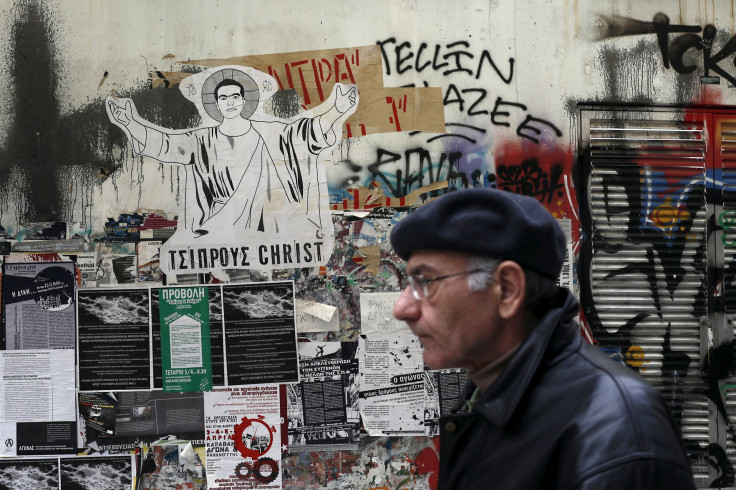Greek Premier Alexis Tsipras Visits Moscow As Loan Deadline Looms

Greek Prime Minister Alexis Tsipras traveled to Moscow on Tuesday amid deep uncertainties about the country's future in the eurozone. Greece is facing a Thursday deadline to repay a 450 million euro ($489 million) loan to the International Monetary Fund (IMF). But the country’s frequent disagreements with European authorities over the terms of its bailout have led to speculation that it may seek financial relief from Russia instead.
Greek officials said the talks which include a scheduled meeting with Russian President Vladimir Putin were part of the government’s efforts to do “what is best for Greece,” and that the visit would be “politically friendly and economically promising,” the Guardian reported. An anonymous Greek official warned eurozone officials that "there is no way we can go beyond [the IMF deadline] April 9," but this was later denied by government officials, according to the Telegraph.
The possibility of aid was floated by Russia’s Finance Minister Anton Siluanov shortly after Greece’s ruling Syriza power came into power in January. Greece, however, refuted the possibility of a Russian loan and insisted that it would be able to negotiate a satisfactory deal with its European partners.
But, recent negotiations have seen a breakdown in communication between both sides.
On Tuesday, Greek Defense Minister Panos Kammenos, leader of the ruling coalition’s junior right-wing party, told the Times that the country would be unable to keep jihadi terrorists from reaching the rest of the continent if the EU did not stop its “meddling” in Greece's "domestic affairs." He had earlier threatened to “flood Europe with migrants” if the EU failed to resolve the debt crisis.
Also on Tuesday, Greece demanded 279 billion euros ($303 billion) in war reparations from Germany for damages during the Nazi occupation of Greece, which Germany flatly denied, the Guardian reported.
Tuesday's talks are expected to touch on EU sanctions against Russia, which Tsipras has criticized as a “road to nowhere.” Russia also has sanctions in place against food imports from the EU, but Russian Agriculture Minister Nikolai Fyodorov told reporters on Tuesday that the government was considering the possibility of ending the food import ban from Greece, Hungary and Cyprus, the Guardian reported.
Russia has also raised the possibility of offering discounted gas to Greece’s beleaguered government, Reuters reported, citing Russian daily Kommersant. Greece already imports almost 60 percent of its gas from Russia, its largest trading partner. “We are ready to consider the issue of a gas price discount for Greece,” an anonymous Russian official told Kommersant.
“We are also ready to discuss the possibility of granting Greece new loans. But here we, in turn, are interested in reciprocal moves – in particular, in Russia receiving particular assets in Greece,” the official said.
Greek energy officials have invited Russian companies to conduct oil and gas explorations off the country’s eastern coast, and have indicated potential support for a planned Russian pipeline running through Turkey, the Telegraph reported.
Western diplomats in Athens anonymously told the Guardian that Greece was behaving recklessly at a critical time, and was trying to play Russia and the EU against each other. “It is as if all the main players in this government are driving and texting at the same time,” an official reportedly said. “What would be amazing, is if there isn’t an accident some time soon.”
© Copyright IBTimes 2025. All rights reserved.




















